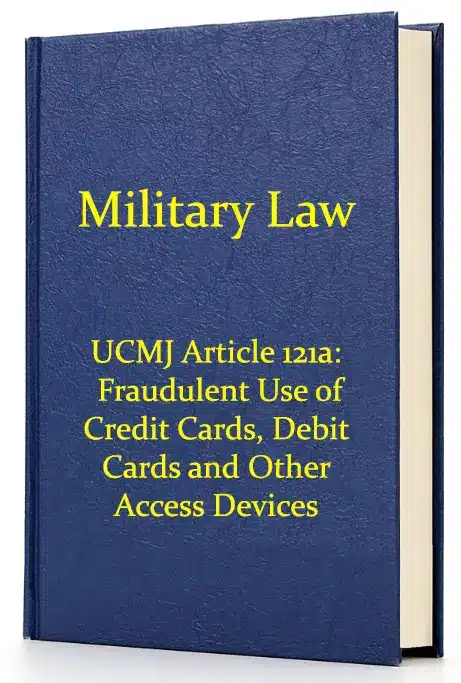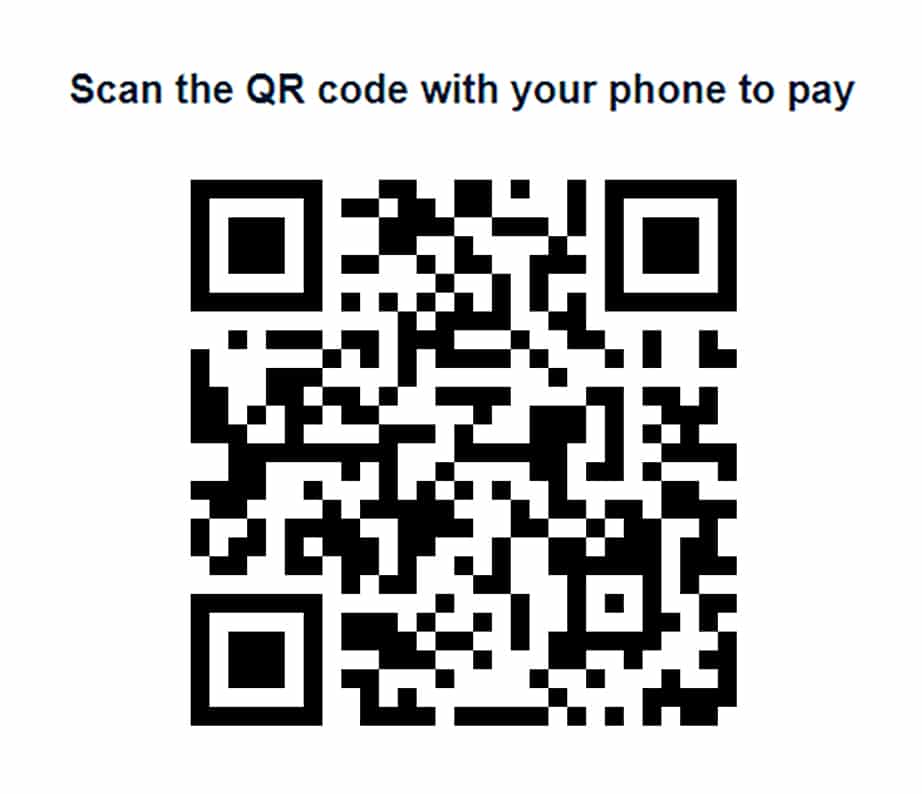The MCM states under Article 121a, any service member may be prosecuted if they knowingly and with intent to defraud use a:
-
a stolen credit card, debit card, or other access device;
-
a revoked, canceled, or otherwise invalid credit card, debit card, or another access device; or
-
a credit card, debit card, or other access device without the authorization of a person whose authorization is required for such use to obtain money, property, services, or anything else of value.
To be prosecuted for an Article 121a violation, it must be proven that:
-
the accused knowingly used a stolen credit card, debit card, or other access device or
-
the accused knowingly used a revoked, canceled, or otherwise invalid credit card, debit card, or
-
the accused knowingly used a credit card, debit card, or other access device without the authorization of a person whose authorization was required for such use;
-
the use was to obtain money, property, services, or anything else of value; and
-
the use by the accused was with the intent to defraud.
Understanding Article 121a (Fraudulent Use of Credit Cards, Debit Cards, and Other Access Devices) of the UCMJ
This article focuses on the accused’s intent and the technology used by the accused. permissionAn intent to defraud must be present. However, the inference of intent may be proven through circumstantial evidence.
The provision of the use of a credit card, debit card, or other access device without the authorization of a person whose authorization was required for such use applies to situations where an accused has no authorization to use the access device from a person whose authorization is required for such use, as well as situations where an accused exceeds the authorization of a person whose authorization is required for such use.
Maximum Possible Punishment for Violations of Article 121a
The maximum possible punishments associated with Article 121a violations vary depending upon the monetary value of the property obtained.
Fraudulent use of a credit card, debit card, or other access device to obtain property worth $1,000 or less yields a bad-conduct discharge, forfeiture of all pay and allowances, and confinement for ten years.
Fraudulent use during any one year of a credit card, debit card, or other access device to obtain property with an aggregate value of more than $1,000 results in a dishonorable discharge, forfeiture of all pay and allowances, and confinement for 15 years.
How do you defend against Article 121a Fraudulent Use of Credit Cards, Debit Cards, and Other Access Devices charges?
When facing the combined resources of the military and the current cultural climate, you need to be prepared to defend your career and your freedom. Crisp and Associates, LLC has a team of experienced trial attorneys with over 75 years of combined experience who have won these cases. This team includes the firm’s founder, Jonathan Crisp, a highly respected and sought-after attorney, speaker, and lecturer who has served in the U.S. Army Judge Advocate General’s Corps (JAG) since 1998 and entered private practice in 2007.
Suppose you, or someone you know, is facing Article 121a charges for Fraudulent Use of Credit Cards, Debit Cards, and Other Access Devices. In that case, you must speak with a Military defense attorney immediately. We understand what is at risk and know how to protect your career, freedom, and future.


